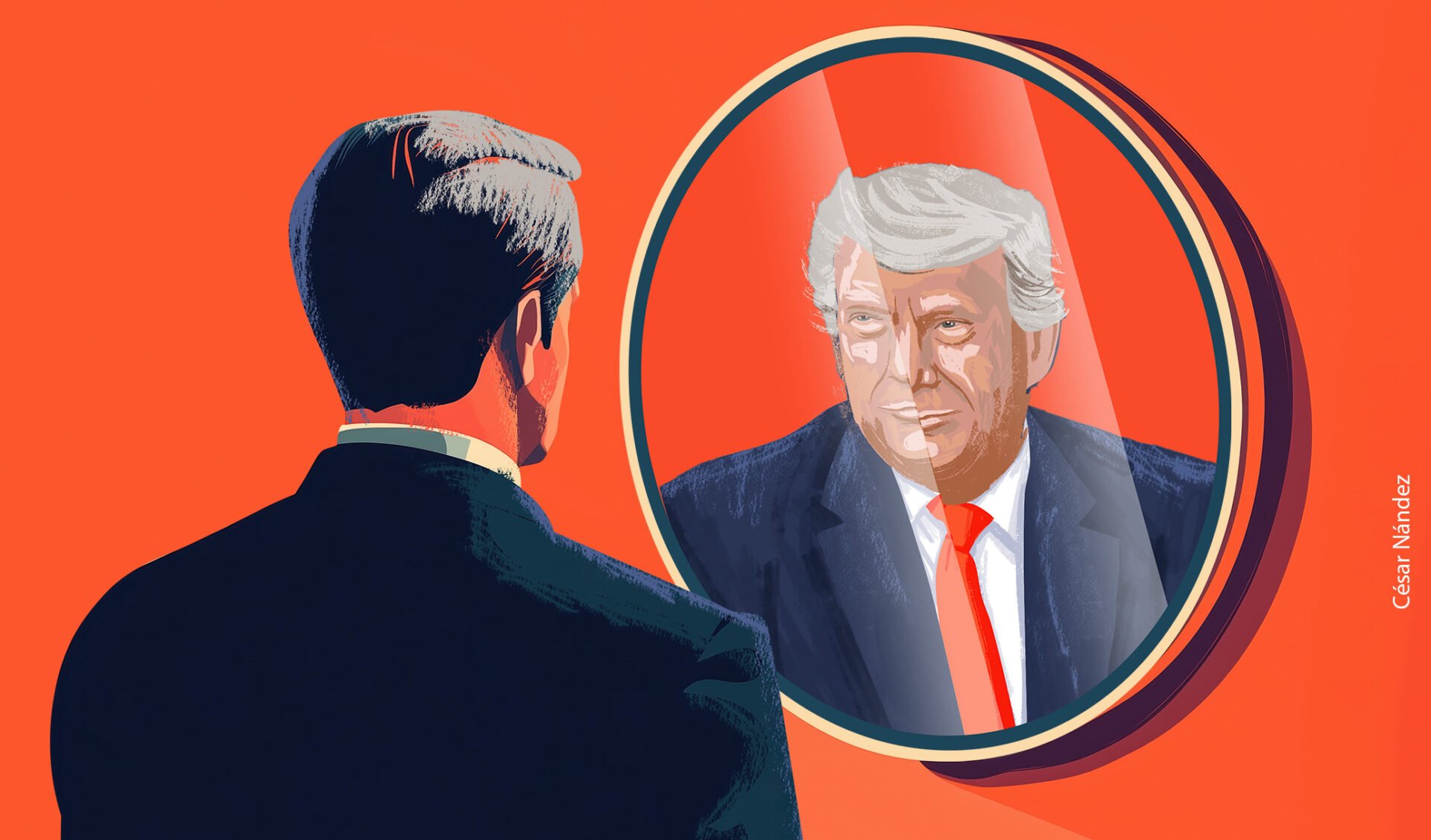The world has witnessed the rise of various leaders labeled as populist or illiberal, often grouped together as though they were a homogenous category. Political science provides frameworks to distinguish and classify leadership styles based on how they wield power. From Chantal Mouffe’s view of right-wing populism as a response by markets and oligarchs, to Max Weber’s concept of charismatic domination, and the term “illiberal leaders” coined by Fareed Zakaria and Gideon Rachman to describe figures like Russian President Vladimir Putin or Hungarian Prime Minister Viktor Orbán, leadership typologies vary widely.
The study of leaders gained momentum with Donald Trump’s election as U.S. president in 2016. However, figures like Putin, Orbán, or former Italian Prime Minister Silvio Berlusconi had been in power long before, receiving less scholarly attention. While it is possible to discuss the rise of conservative leaders globally, each case carries unique characteristics.
Although this ideology is not uniform and encompasses various nuances, since 2016, Trump has often been used as a reference to describe other leaders associated with the far-right wave. Leaders such as Jair Bolsonaro, Nayib Bukele, Javier Milei, Narendra Modi, Boris Johnson, Geert Wilders, Marine Le Pen, and even Andrés Manuel López Obrador—a leftist leader—have been dubbed “the Trumps of…”
This approach is not just a descriptive mistake but a methodological one, as each leadership displays unique ideological, rhetorical, and governance styles. Popularizing such a nickname fosters confusion and oversimplifies the analysis of distinct cases.
Donald Trump’s ascent to the White House in 2016 marked a turning point, largely due to the polarizing nature of his campaign. His rhetoric centered on economic protectionism and job security, incorporated xenophobic tones regarding immigration, and expressed admiration for authoritarian peers, often praising them openly.
The Latin American Trumps
Trump’s victory is often perceived as a catalyst for conservative leaders elsewhere, but there is little evidence to support this claim. In Latin America, history has shown that the election of strong leaders is a way to compensate for the region’s institutional fragility. Four prominent cases frequently discussed are Andrés Manuel López Obrador in Mexico (2018), Nayib Bukele in El Salvador (2019), Jair Bolsonaro in Brazil (2019), and Javier Milei in Argentina (2022).
Mexico’s former president López Obrador was sporadically nicknamed “the Mexican Trump” due to his authoritarian tendencies. However, he crafted his own governance style, championing leftist politics intertwined with the nationalist legacy of the Institutional Revolutionary Party (PRI). His illiberal approach resembled Orbán’s, as he sought to erode institutions and judicial independence.
In contrast, Bukele’s leadership differs significantly from Trump’s. The Salvadoran president has built his brand around unflinching hardline policies, gaining regional acclaim. Yet Bukele is often regarded as a leader without a clear ideology.
In South America, Bolsonaro embodied an admirer of military regimes, especially Brazil’s 1964 coup. The former military officer displayed charisma as a conservative free-market advocate, with minimal commitment to issues like climate change and the Amazon rainforest conservation. Bolsonaro’s right-wing base is deeply rooted in the military and evangelical communities, which wield significant electoral influence.
Argentina’s Javier Milei represents a different case. His surprise victory marked a regional shift. Identifying as a libertarian—an extreme branch of liberalism favoring deregulation and minimal state intervention—Milei’s political chameleonism complicates categorization. While he promotes traditional values such as life, the private property, and free markets, his rhetoric is steeped in populism. His governance style aligns more with former Argentine President Carlos Menem, who privatized public companies and deregulated the economy.
The European Trumps
In Europe, far-right agendas vary significantly, often diverging from Trumpism. Former UK Prime Minister Boris Johnson was labeled “the British Trump” due to his physical resemblance. However, his rhetoric focused primarily on Brexit. Unlike Trump, Johnson neither denounced the establishment nor adopted racist stances or radical ideologies. Instead, as an Oxford- and Eton-educated member of the Conservative Party elite, he embodied traditional British political norms.
Further south, in continental Europe, comparisons between Trump and Marine Le Pen in France are also tenuous. Although both are representatives of the most extreme far-right, their similarities are limited to anti-immigration rhetoric. The leader of Rassemblement National has embraced free trade over protectionism, toned down aggressive rhetoric, and adopted environmental policies.
In the Netherlands, Prime Minister Geert Wilders, a proponent of European nationalism, has also been called “the Dutch Trump.” However, Wilders explicitly rejects this comparison, stating, “I’m not Donald Trump; don’t call me the Dutch Trump—I’m the Dutch Geert Wilders.” Wilders is known for his Euroscepticism, opposing the European Union, and his anti-Islam stance. Unlike Trump, his rhetoric emphasizes equality among individuals while asserting that values, religions, and ideologies are not equal. Since taking office, Wilders has displayed moderation, indicating that his populist campaign rhetoric did not translate into populist governance.
The case of Narendra Modi
In Asia, Indian Prime Minister Narendra Modi has been nicknamed “the Trump of India.” Yet, their leadership styles have nothing in common. Modi seeks to establish an ethnic democracy prioritizing the Hindu community over Muslims. His leadership carries a religious aura, portraying himself as a divinely chosen figure to reshape India’s destiny.
Conclusion
Leaders across the world often labeled as Trump’s counterparts share more differences than similarities with him. The phenomenon of strongmen or caudillos has been a fixture of Latin American history since its inception. In Europe, such figures exhibit traits of flamboyance and reformism, while in Asia, the trajectory diverges further from Western paradigms. Generalizing these characteristics introduces analytical biases, hindering a deeper understanding of the question: why are people choosing authoritarian leaders?
*Machine translation proofread by Ricardo Aceves.













